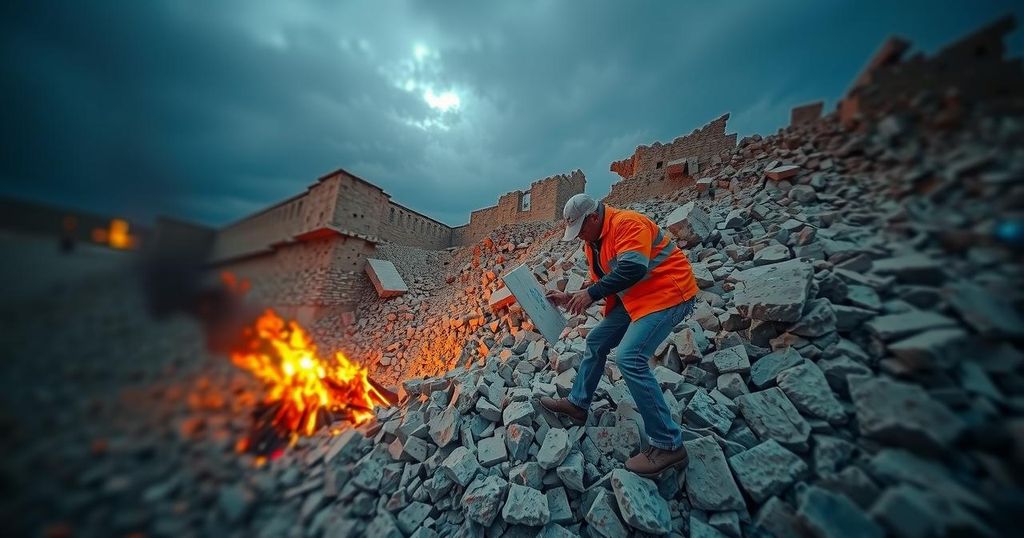On October 11, 2023, a 6.3 magnitude earthquake struck Herat province in Afghanistan, worsening conditions following a previous quake on October 7 that devastated the area. Thousands of residents are in urgent need of aid, with particular emphasis on medical assistance, shelter, food, and clean water as winter approaches. CARE Afghanistan is actively responding by deploying health clinics and distributing essential supplies, while facing challenges related to funding and resource shortages.
A powerful earthquake measuring 6.3 on the Richter scale struck Herat province in western Afghanistan on October 11, 2023, compounding the already dire situation faced by local residents following a previous quake that occurred on October 7. This recent seismic event has left thousands in urgent need of humanitarian assistance, particularly affecting those who were already vulnerable due to the earlier disaster that resulted in more than 1,000 deaths and impacted over 12,000 individuals. The tremors were centered near the provincial capital, Herat, and have devastated countless homes, forcing many families into temporary shelters. In response to the escalating crisis, CARE Afghanistan has mobilized its resources swiftly. Reshma Azmi, Deputy Country Director of CARE Afghanistan, stated, “The people of Herat have already endured significant hardships, and this subsequent earthquake has only further exacerbated their plight. We are actively mobilizing our resources and have deployed 5 mobile health clinics to provide critical medical assistance. We have prioritized the injured individuals and affected population, with a focus on women and girls.” Since the initial quake, CARE has distributed vital supplies—such as dignity kits, blankets, tarpaulins, ready meals, and water—to approximately 2,500 individuals affected by the disaster following the earlier event. However, after the recent earthquake, the organization emphasizes a pressing need for medical supplies as regional hospitals reach capacity amidst shortages. The demands for adequate shelter, food, and water are becoming increasingly urgent, particularly given the onset of colder temperatures and the overall underfunding of the humanitarian response plan, which has exacerbated the situation. CARE has been operational in Herat since 2020, employing 133 staff members, all of whom remain safe. The organization has redirected its ongoing health projects to address the immediate needs of earthquake survivors.
The crises in Afghanistan have intensified, particularly in the Herat province where residents are grappling with the aftermath of two significant earthquakes within a short time frame. The series of seismic disturbances has led to widespread destruction, overwhelming local health and humanitarian services. With the region’s existing vulnerabilities heightened by socio-economic challenges and conflict, the need for urgent humanitarian aid is critical. Organizations like CARE are trying to respond promptly, though funding shortages and harsh winter conditions pose additional challenges to relief efforts.
In conclusion, the recent 6.3 magnitude earthquake in Herat province has magnified an already grave humanitarian crisis, necessitating immediate and substantial aid for thousands of affected individuals. CARE’s proactive measures to provide medical assistance, essential supplies, and support for the injured population reflect a commitment to alleviate the suffering of those impacted. However, the continuing underfunding of humanitarian efforts and the looming cold weather may pose significant barriers to effective relief and recovery.
Original Source: www.care.org






